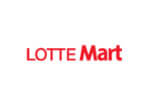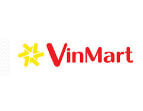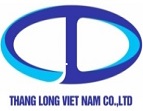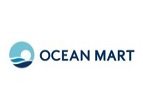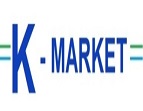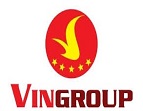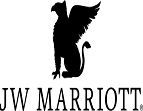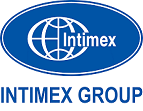18. What steps can your organization take to ensure that accreditation and certification are maintained and updated? Compliance requirements vary from jurisdiction to jurisdiction, making regulatory compliance assessment a difficult and extensive responsibility for business leaders responsible for monitoring. 23.Describe how your organization reviews and improves ethical and legal compliance. Add details on the research conducted, methods for measuring success, and developing strategies for ongoing compliance. 6. Write three separate paragraphs about your organization`s responsibilities to employees, customers, and the wider community. Include details on health and safety, equal opportunity, fair selling strategies and corporate social responsibility. Ensure that all records within the organization and across all units are rigorous, that your compliance teams know what to keep the records about, and that they are securely stored in an easily accessible central repository. The quality of records is an essential element of a successful assessment of regulatory compliance. 4. Identify four possible consequences of compliance breaches that are specific to your business.
2. Identify five topics that are covered in the policies and procedures provided by your organization. Legal aid systems evolve in the context of a State`s legal and criminal justice systems and its available resources and needs. The adoption of a particular model of legal aid depends on a number of factors, including the number and availability of lawyers, the demand for legal aid, the vulnerability of potential beneficiaries and the financial resources available. However, regardless of the system chosen, institutional arrangements and funding mechanisms should ensure the independence of legal aid providers in the performance of their tasks. 5.1. Give four reasons for seeking legal advice. The main purpose of legal entity management software is to store and maintain all business-related information in order to create a single source of information for all business-related information. It enables the implementation of processes and procedures across all global units to ensure the accuracy, accuracy and timeliness of your compliance program. In particular, small, growing organizations may unintentionally break laws.
To avoid this, make sure the organization is transparent in its operations. In addition, it is advisable to hire specialists or consult consultants to ensure that everything is in order. This allows owners and employees to seek advice as needed to ensure policies and procedures are compliant. Reliable regulatory compliance requires quick and easy access to up-to-date, real-time data. Measuring with old or incorrect data can actually lead to a drop in compliance, which can have long-term financial and reputational effects on a company or a larger group of companies. 19.Provide details of your organization`s reporting procedure for breaches of ethics or law. Provide details about the types of breaches that may occur in your organization, appropriate response options, and details of employees who need to be contacted. By working closely with compliance, a legal department can ensure that the organization operates both efficiently and ethically. 20.Describe four methods that could be used to identify legal and ethical issues relevant to your business. University clinics: Legal assistance is provided by law students who work in university law clinics, receive appropriate training, and are supervised by law professors or lawyers. Examples can be found in many countries, including the United States, and several countries in Africa and Latin America.
Two interrelated but conceptually different topics are relevant. First, legal aid services must be organized in such a way that legal advice and assistance can be provided without delay, when and where it is needed. Second, criminal justice authorities such as the police and prisons must facilitate rapid access for legal aid providers. The first is dealt with here. The second issue is dealt with in theme 7. It is important to consider non-legal requirements when assessing your organization`s conformity. Has the company signed any industry codes? Does the company comply with all ethical guidelines? Do you meet the requirements of licensing, financing or leasing agreements? Expand your network when you take the necessary steps to assess regulatory compliance and ensure you get a complete picture of your organization`s compliance status. While lawyers advise on legal law and best practices, it is the responsibility of compliance professionals to develop compliance controls, procedures, policies and systems to ensure that the business operates within clearly defined parameters.
All legal compliance policies you implement must be strictly adhered to and kept up to date. When assessing regulatory compliance, ensure that your policies are still fit for purpose. Have there been any changes in the company or industry that need to be reflected in the updated policies? Are your employees aware of the policy and working in accordance with these guidelines? These are important questions to ask frequently. An annual review is essential to successfully assess compliance, supported by regular spot checks. When it comes to regulatory compliance, an organization`s legal requirements are twofold. First, to ensure compliance with established laws and regulations so that a company can operate in a reputable manner in a particular jurisdiction. Second, the implementation of robust internal compliance systems imposed by a legal department in accordance with rules and processes. In-house counsel play a critical role in protecting the company, its directors and employees. The Thomson Reuters Practical Law Compliance and Ethics Toolkit states that legal departments can ensure compliance by: An effective compliance program relies heavily on the cooperation and support of a company`s legal department. 11. Which members of your organization are responsible for monitoring and maintaining compliance? 10.What systems does your organization have in place to protect customer data? Contact us and schedule a demo to learn how Diligent`s entity management software can help your compliance team gain control and visibility into governance, risk, and compliance objectives, and clarify how to assess regulatory compliance.
Legal advice, support, and representation is provided by lawyers (sometimes assisted by paralegals or law students) working in specialized offices funded directly or indirectly by state or federal governments, civil society organizations, or NGOs. Examples can be found in Israel, Scotland, Ukraine, some African countries such as Liberia and most Latin American countries. In-house counsel, on the other hand, play a fundamental role in training, due diligence and the provision of legal advice and analysis, and sometimes the conduct of internal investigations. 15. Provide details on five methods used by your organization to assess compliance with work practices. Countries have developed various mechanisms to ensure the prompt provision of legal aid to persons in police custody or other forms of custody: mandatory legal and custodial services; embedded systems; and visitor programs. These are explained in the Early Access Manual, 2014, Chapter IV, Section C. A sufficiently comprehensive regulatory compliance program should include seven key elements, as recommended by the Office of the Inspector General (OIG) of the Department of Health and Social Services: Find out if you can get free legal help in a case with the Commission on employment matters. Employers and employees may be eligible. The main models for the provision of general mutual legal assistance services in criminal matters can be classified as follows.
Compliance and the law are separate concerns, but the two are closely linked; One of the primary responsibilities of a company`s legal department is to ensure, promote and facilitate compliance. 3.1. What should you do if you cannot successfully interpret legal or ethical information? Entity management is important, but it also targets entity governance, where compliance teams have enough strategic control over the business structure to predict the downstream impact of changes in regulations and laws. Strong corporate governance is based on regular assessments of regulatory compliance. The sustainability and effectiveness of access to legal aid in the criminal justice system depends not only on administration and funding, but also on the mechanisms through which legal aid services are organized and delivered. States have adopted various approaches that depend on a number of factors, as briefly described in the following excerpt from the UNODC Model Law (2017) on article 13: Legal aid is provided by paralegals who may or may not have a legal qualification. They tend to be of two types. In the first case, paralegals perform some of the duties of lawyers, but not the full range of services, and work with or for lawyers or refer cases to lawyers in relation to work that can only be performed by a lawyer.








